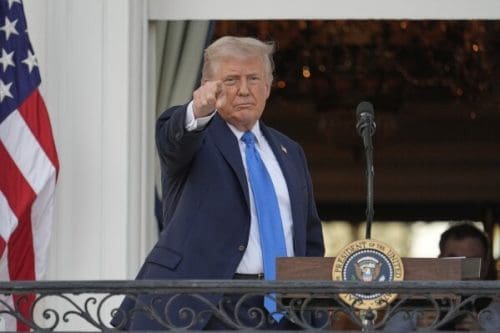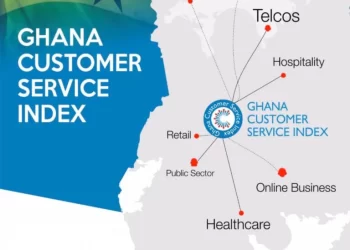Ghana is among 36 countries reportedly being considered for inclusion in a new round of U.S. visa restrictions, as part of President Donald Trump’s controversial push to tighten immigration controls in his second term.
A leaked memo from the U.S. State Department, reviewed by The Washington Post, reveals that the administration is contemplating an unprecedented expansion of its travel ban policy — potentially affecting 25 African countries, including Ghana.
The proposed action is said to stem from assessments related to visa overstays, insufficient security cooperation, and weak information-sharing protocols between foreign governments and U.S. authorities.
The memo, signed by Secretary of State Marco Rubio and dated Saturday, outlines a 60-day ultimatum for the governments of the listed countries — including Ghana — to meet new U.S. security benchmarks.
It calls for immediate action plans to address shortcomings in border control data and vetting systems, or risk facing harsh visa restrictions or outright bans on specific travel categories.
Ghana faces potential diplomatic and economic fallout
Ghana, which maintains longstanding diplomatic, academic, and economic ties with the United States, stands to be significantly affected if the proposed restrictions are enacted.
The estimated number of Ghanaians living illegally in the USA is not precisely known, but various estimates suggest it could be in the range of tens of thousands.
The Pew Research Center and other immigration studies indicate that the total undocumented immigrant population from West Africa, including Ghana, is significant but not specifically broken down by nationality.
Some estimates suggest that there are approximately 30,000 to 50,000 Ghanaians living in the U.S. without legal status.
Analysts say such a move could strain bilateral relations, limit educational opportunities for Ghanaian students, disrupt family unifications, and hinder legitimate business travel.
Ghana’s inclusion in the list has sparked concern within government circles and among stakeholders in academia and trade.
The country has historically enjoyed cooperative ties with U.S. institutions, including military and counterterrorism cooperation, democratic development programs, and robust diaspora networks.

According to sources familiar with the development, the Ghanaian government is seeking urgent clarification from U.S. officials and may join other affected countries in engaging diplomatically to avoid full implementation of the proposed sanctions.
Trump’s hardline immigration agenda
The policy under consideration would represent the most significant escalation of President Trump’s travel ban since its original version was issued in 2017 and later upheld in modified form by the U.S. Supreme Court. The current expansion would build on that foundation by targeting countries deemed to have high visa overstay rates or inadequate immigration screening protocols.
In addition to Ghana, other African nations named in the leaked document include Nigeria, Ethiopia, Kenya, Egypt, Cameroon, and Senegal — all considered strategic U.S. partners. Outside Africa, countries like Cambodia, Bhutan, Syria, and Saint Lucia also appear on the list.
Critics of the policy, including immigration advocates and African governments, argue that the criteria being used are vague and discriminatory, particularly as the ban disproportionately targets African nations. They warn that it may damage the U.S.’s image as a partner in development and diplomacy on the continent.
If the ban is formally enacted, its impact could be far-reaching. Thousands of Ghanaians apply for student visas, business travel permits, or immigrant family reunification programs each year.
In 2023 alone, over 2,500 Ghanaians were granted student visas to pursue higher education in the U.S., while hundreds of professionals participated in U.S.-sponsored fellowships, training, and bilateral exchange programs.
Ghana’s growing tech ecosystem, medical diaspora partnerships, and commercial trade with American companies could also be affected if travel and migration channels are curtailed. Ghanaian-American communities, particularly those advocating for family reunification, have voiced concerns about the chilling effect such a ban would have on families separated across borders.

African Union, Regional leaders expected to respond
Though the State Department has declined to officially confirm the memo’s contents, the leak has prompted diplomatic ripples across the African continent.
Several affected governments, including Ghana, are reportedly coordinating through regional blocs to seek clarity and, if necessary, challenge the basis of the restrictions.
The African Union is expected to issue a formal response should the Trump administration move forward with the expanded travel ban. In previous years, AU officials have condemned similar policies as “stigmatizing” and “detrimental to African development.”
Next steps: Diplomacy or Disruption?
The leaked memo provides a 60-day window for Ghana and other countries to submit detailed plans to enhance information-sharing and visa vetting systems in line with U.S. demands. Failure to meet these criteria could result in the imposition of harsh restrictions, possibly affecting diplomatic staff, students, businesspeople, and tourists.
While the Ghanaian government has not issued an official statement yet, insiders say discussions are underway with the U.S. Embassy in Accra and key Ghanaian ministries to respond comprehensively to the new requirements.
As pressure mounts, the stakes are high. Ghana now faces the challenge of navigating diplomatic channels to avoid a visa ban that could derail years of strategic partnership, economic cooperation, and human capital development.












